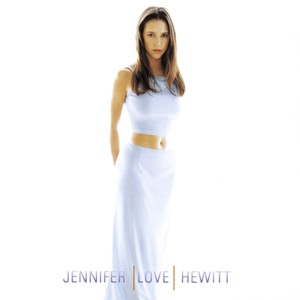
Jennifer Love Hewitt is the self-titled third studio album by actress and recording artist Jennifer Love Hewitt. It was released on September 3, 1996 by Atlantic Records.
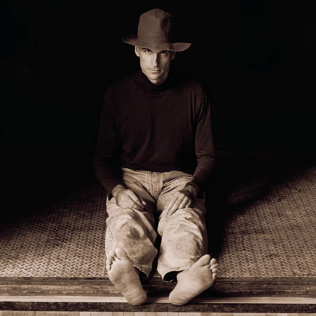
Hourglass is the fourteenth studio album by singer-songwriter James Taylor released in 1997. It was his first studio album in six years since 1991's New Moon Shine. It was a huge commercial success, reaching No. 9 on the Billboard 200, his first Top 10 album in sixteen years and also provided a big adult contemporary hit, "Little More Time With You".

You Can't Do That on Stage Anymore, Vol. 6 is the last of six double-disc collection volumes of live performances by Frank Zappa recorded between 1970 and 1988. All of the material on Disc one has a sexual theme. Zappa used the monologue in "Is That Guy Kidding or What?", to ridicule Peter Frampton's album I'm in You with its double entendre title and pop pretensions. Disc two includes performances from Zappa's shows between 1976 and 1981 at the Palladium in New York City, as well as material like "The Illinois Enema Bandit" and "Strictly Genteel" that he frequently used as closing songs at concerts. It was released on October 23, 1992, under the label Rykodisc.

Hello Big Man is the 11th studio album by American singer-songwriter Carly Simon, released by Warner Bros. Records, on August 31, 1983.

Coming Around Again is the 13th studio album by American singer-songwriter Carly Simon, released by Arista Records, on April 13, 1987.

L.A. Is My Lady is the 57th and final solo studio album by American singer Frank Sinatra, released in 1984 and produced by Quincy Jones. While the album was Sinatra's last, he recorded five further songs, only four of which have been officially released.
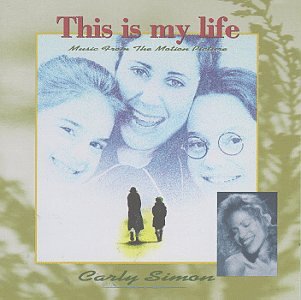
This Is My Life (Music from the Motion Picture) is the soundtrack album to the 1992 Nora Ephron film This Is My Life, released by Qwest Records, on April 14, 1992.

You Hold the Key is Beth Nielsen Chapman's third album. It was released in 1993 on Reprise Records, and features a duet with British singer-songwriter and Mike + The Mechanics vocalist/keyboardist Paul Carrack, called "In the Time It Takes".

As Time Goes By: the Great American Songbook, Volume II is Rod Stewart's second album of pop standards, and his 21st album overall. It was released on 14 October 2003 by J Records.

Elton John and Tim Rice's Aida is a 1999 concept album that contains songs from, but predates the main production of, the 2000 musical Aida.

Chemistry is the second solo album by singer Johnny Gill. It was released on April 22, 1985.

Americana is the thirteenth studio album by American singer-songwriter Michael Martin Murphey and his second for Warner Bros. Records. Murphey found a receptive home with the label and began a long association with the label's president and resident producer, Jim Ed Norman. Unlike his previous albums, Americana contains material written mainly by other writers—Murphey only wrote or co-wrote three of the songs. The album's notable tracks include the #1 hit "A Long Line of Love" and the #4 "Face in the Crowd", the latter a duet with singer Holly Dunn. The album peaked at number 32 on the Billboard Top Country Albums chart.
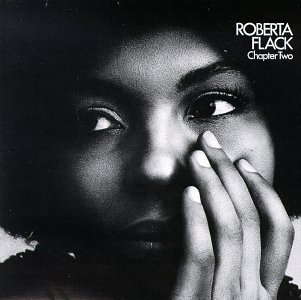
Chapter Two is the second album by the American soul singer Roberta Flack. It was released in 1970 by Atlantic Records.

No Looking Back is an album by Irish-English-American singer/songwriter Gerard McMahon, released on the Full Moon/Warner Bros. label in 1983. The album was produced by Gerard McMahon and Michael Ostin. On the inside cover the album is dedicated to Christiane.

One Shot Deal is an album by Frank Zappa, posthumously released in June 2008.

Funk of Ages is a solo album by former Parliament-Funkadelic keyboardist Bernie Worrell. The album was released in 1990 by Gramavision Records. It includes contributions by numerous guest musicians, including Sly and Robbie, David Byrne, Herbie Hancock, Keith Richards, Vernon Reid, and Phoebe Snow. P-Funk bandmates Bootsy Collins, Maceo Parker, Gary Cooper, Doug Duffey, and Michael Hampton also contributed.

Hits! is a compilation album by Boz Scaggs, first released in 1980. It focuses primarily on material released in 1976 and 1980. The album has been certified platinum by the RIAA.

Back to the Grindstone is the twentieth studio album by American country music artist Ronnie Milsap, released on March 12, 1991. The album produced four singles, three of which reached the top ten on the Billboard country singles chart, including "Are You Lovin' Me Like I'm Lovin' You," "Since I Don't Have You," a cover of The Skyliners' 1958 standard and "Turn That Radio On." The fourth single, "All Is Fair in Love and War" peaked at number 11. Milsap produced the album with Rob Galbraith, with further assistance from Richard Landis on "Since I Don't Have You".

The Definitive Collection is a 1997 greatest hits album of all the singles released by Cleveland, Ohio singer-songwriter Eric Carmen. It features five hits by the Raspberries, a power pop group which he led in the early 1970s. It also contains his versions of two major hits which he wrote for Shaun Cassidy, two popular songs from the movie Dirty Dancing, and his greatest hit, "All By Myself", which peaked at No. 2 on the Billboard Hot 100 on March 5, 1976.
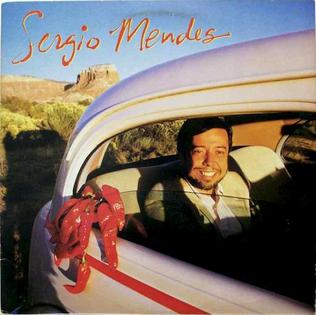
Sergio Mendes is an album by Brazilian keyboardist Sérgio Mendes, released in 1983 on A&M Records. It was his first top 40 album in nearly a decade and a half, his second self-titled album, and was accompanied by his biggest chart single ever, "Never Gonna Let You Go", a song written by Barry Mann and Cynthia Weil and with a lead vocal performed by Joe Pizzulo and Leeza Miller that reached No. 4 on the Billboard Hot 100. The album was released with Spanish-language versions of the songs as Picardía.




















